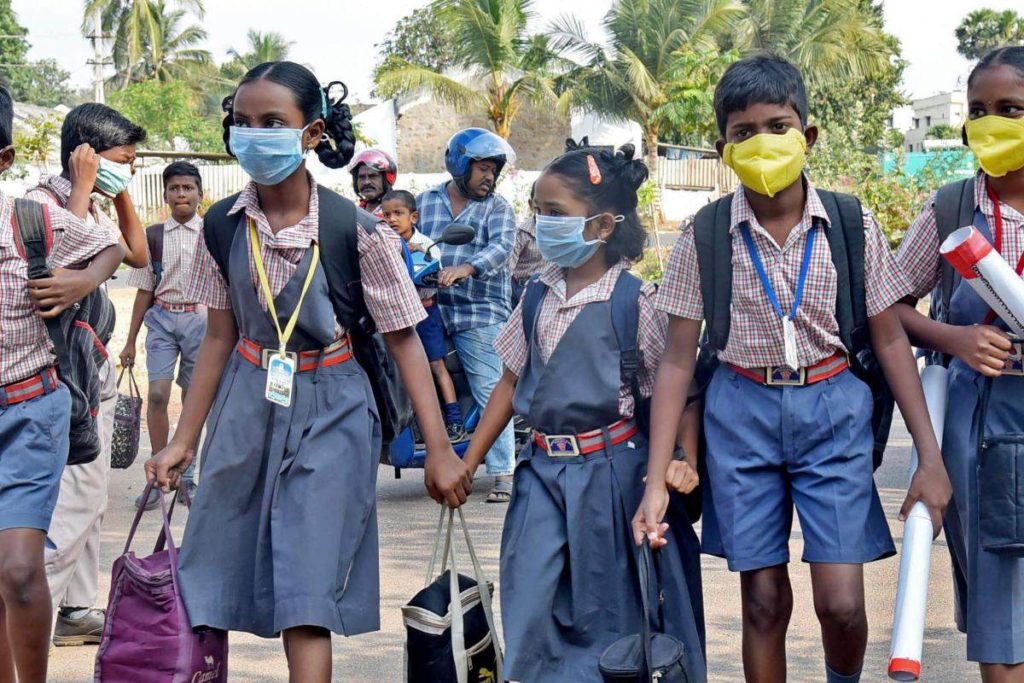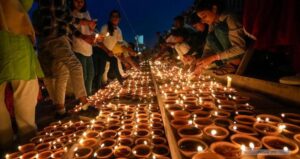Jagmohan Singh, Vikas Gupta
Dear Prime Minister,
“LET US MAKE ATMANIRBHAR BHARAT”,
This is the slogan given by you recently.
THEN WHY IS WORLD BANK INVITED
TO DESIGN AND MONITOR SCHOOL EDUCATION IN INDIA?
The All India Forum for Right to Education (AIFRTE), a federal platform of more than 80 students, youth, teachers and civil society organizations from 22 states/UTs and active since June 2009, is deeply disturbed and anguished to find that Government of India (GOI) has not only agreed in October 2019 to allow the World Bank (WB) to intervene in India’s School Education through its ‘Strengthening Teaching-Learning and Results for States’ (STARS) Program but is now preparing to sign a Loan Agreement with the WB on 24th June 2020. STARS is to be implemented in six states viz., Himachal Pradesh, Kerala, Madhya Pradesh, Maharashtra, Odisha and Rajasthan as a pilot project.
1. The World Bank’s STARS Program is focused on strategically selected stages of the Samagra Siksha Abhiyan in order to
- influence teaching-learning content, practices and outcomes of the entire system of school education from ECCE onwards,
- train and monitor faculty for implementing the above,
- set up “merit-based” learning assessment systems based on the above and
- formulate and implement governance reforms which would not only cover actual governance but would also extend from the training of educational officials on the one hand to an extensive outreach to train parents to participate in the process of implementing the program on the other.
This over-arching control and systemic intervention by the World Bank in all aspects of the proposed “reformed” education system is to be secured by its contributing over a period of six years from the date of approval a mere 14.93% of the total costs. GOI will contribute 53.43% and the states of the Union will contribute 31.64% towards the total costs. Further, the overall expenditure for 2019-25 under the GOI’s Samagra Shiksha Abhiyaan (of which STARS would be a component) is estimated at US$ 36 billion (Section 14, page 7, the STARS Program Information Document dated June 3, 2020). Thus, the World Bank’s contribution would amount to only 1.4% of what the GOI and the state/UT governments will spend together on the entire school education. If the government can mobilize 98.6% of the finance required for the Samagra Shiksha Abhiyaan, why can’t it mobilize an additional 1.4%?
This is the same proportion which the WB contributed to District Primary Education Programme (DPEP) in the 1990’s. DPEP, designed and sponsored by the WB was implemented in 18 states and almost half of India’s Districts during 1993-2002. It led to rapid deterioration of the quality of state-funded Primary School System (Class I-V) and widespread loss of its credibility among the common people, especially among the SCs/STs/OBCs/Muslims/Denotified Tribes and other impoverished sections of society. Consequently, privatization and commercialization of school education increased during the post-DPEP decade at a pace higher than in any of the previous decades since independence.
This was precisely the World Bank’s core ideological agenda. It is an institution devoted to protecting and advancing the interests of International Finance Capital. It is not an institution equipped or concerned with the educational rights and pedagogical concerns of providing quality education to the vast majority of the India’s children who are currently deprived of the benefits of education.
The World Bank’s DPEP Program’s focus was on converting India’s Elementary School sector (Class I-VIII) comprising almost 20 crore children in the 6-14 year age-group into a ‘Market’ for corporate investors and thereby commercializing education. In achieving this objective, the Bank took full advantage of the Structural Adjustment `reforms’ program imposed by International Monetary Fund (IMF), compelling the GOI to steadily reduce its public expenditure on education from 4% of GDP in 1990 to less than 3.5% of GDP in 2003. It has since been steadily declining pushing out vast numbers of children from schools as education, a Fundamental Right, has become “too expensive” for them to access. The negative experience of the DPEP for India’s primary education was systematically ignored and the Bank’s intervention in Sarva Shiksha Abhiyaan (SSA) continued from 2002 until now.
2. The STARS Project is the third round of World Bank’s intervention in Indian education, this time being promoted by your government. Despite your government’s penchant for claiming India as `Vishwa Guru since ancient times’, it seems unaware that India has had a rich legacy of transformative educational philosophy and initiatives since the mid-19th century. Your government has failed to learn from our inspiring anti-caste, anti-imperialist and pro-socialist legacy for democratising education from pre-independence times – from Jotirao Phule, Savitribai and Fatima Bi, Dadabhai Naoroji, Chhatrapati Shahuji Maharaj, Gopalkrishna Gokhale and Karmaveer Bhaurao Patil (Maharashtra); Iyothee Thass, Singaravelar and Periyar (Tamil Nadu); Narayan Guru and Ayyankali (Kerala); Kundukuri Veersaligam and Gurajada Apparao (undivided Andhra Pradesh); Kudmul Ranga Rao and Krishnaraja Wadiyar IV (Karnataka); Ishwarchand Vidyasagar, Tagore and Rokeya Begum (West Bengal); Syed Ahmad Khan and Madan Mohan Malviya (Uttar Pradesh); Lala Lajpat Rai and Shaheed Bhagat Singh (Punjab); Dr. Zakir Husain (Delhi); Sayajirao Gaekwad III and Gijubhai Badheka (Gujarat); Rev Thomas Jone and Ramke W Momin (Meghalaya); Rev. F. W. Savidge (Mizoram); Hijam Irabot (Manipur); Guizang Meru Zeliang (Nagaland); the progressive rulers of independent states like the Maharajas of Baroda and Gondal, of Kolhapur, Mysore and Travancore and the Begums of Bhopal; and, finally, the historic debate between Gandhi and Dr. Babasaheb Ambedkar on the question of caste in the 1930s and both of them independently re-envisioning education for social transformation.
This rich educational discourse influenced the course of the Freedom Struggle leading to Resolutions passed by the Indian National Congress on setting up Nationalist institutions and boycotting Imperialist institutions at Nagpur (1920) and for establishing Independent India’s education on a completely new foundation at Haripura (1938) and to the significant involvement of students and student organizations in the Independence movement. In 1944, the Central Advisory Board of Education (CABE) stated that the purpose of education was holistic – to develop the personality and talents of the individual, to prepare the ground for a livelihood, and to nurture independent citizens of a modern democratic State.
This rich, diverse and often contested legacy influenced the Constituent Assembly Debates and resulted in the equal right to quality education for all becoming a responsibility on the Indian State to be implemented by 1960 in accordance with Directive Principle 45 of the Constitution. In 1993 the Unnikrishnan Judgement of the Supreme Court declared this to be a Fundamental Right which obligated the State to implement it.
3. The above facts reveal that it is not at all questions of a lack of financial resources or of pedagogical expertise that is driving GOI once again into the bankruptcy of World Bank controlled programs. The truth is that your government, like successive Central governments since the 1990’s, is entirely in line with the World Bank’s market ideology and, therefore, against the Constitutional imperative of building an egalitarian education system based on social justice and freedom from discrimination. Like the World Bank, your government intends to dismantle the state-funded education system and replace it by a corporatized and elitist education system that will leave neither access nor agency for almost 85% of our population: SCs/ STs/ OBCs/ Muslims/ Denotified Tribes, persons with disabilities and particularly women in each of these sections. This massive exclusion would be implemented under various pretexts – discrimination based on class, caste, race, religion, gender, language, birth place, disability and so on; so-called ‘low’ performance in elite, privilege-based assessments of “merit”; low attendance (as would be the case with `working’ children and the children of migrant labour in the post-Covid-19 pandemic period); withdrawing and undermining social justice programmes (like reservation policy in admissions and employment, and adequate provision of hostels, and scholarships/fellowships); and by thus diverting Bahujans to vocational streams which would deny them access to higher education and advanced areas of professional knowledge and achievement.
4. Both the GOI and the WB are in a rush to approve the STARS program even though the GOI, the country and the people are completely overwhelmed by the Covid-19 corona virus pandemic. Infections are surging ahead following the unplanned lifting of the lockdown which itself was imposed within four hours and remained administratively ill-conceived and unprepared for. The panic and misery this caused the vast majority of India’s working population particularly migrant workers, daily wagers, the self-employed, the homeless and lakhs of those who lost their jobs was not hidden from anyone, yet the government chose to look the other way for almost two whole months as their pathetic condition forced a migration as enormous and painful as the 1947 migration of peoples during Partition. This should have been reason enough to shelve the STARS project which is not foremost in the minds of the people at this time of a chaotic health emergency. Hence it has neither been placed before them for debate nor has any attempt been made to involve students, teachers and parents in the process of assessing the implications of the STARS program and arriving at a decision to go ahead with it at all costs. Without a full, well-informed and open national debate, something impossible under present conditions, the GOI has neither the democratic authority nor the moral right to impose such a program on the people and the children of India. The gravity of this threat leaves us with no option but to demand that the government immediately gives up all plans to go ahead with the program.
5. Since the GOI appears impervious to these considerations and is planning to go ahead full steam with its commitment to the WB, it is necessary to outline some of the major deficiencies of the STARS program and the grave threat that it poses to the fundamental right to quality education for all India’s children that is guaranteed by the Constitution:
5.1 STARS sees “non-state actors” as crucial to the reform of the existing crisis ridden education system. Since STARS includes in this omnibus term private corporate investors; NGO’s, civil society/charitable/religious organizations; fee-paying parents and community level institutions, it is very clear that only the GOI is neither accountable nor responsible for correcting the system. State governments too will follow the lead and only “monitor” the implementation of a Program designed without their involvement or consultation.
5.2 India has already seen the negative impact of a variety of PPP (Public Private Partnership) initiatives promoted by the WB and the corporate sector. PPP strategies have privatized access to education and pushed the economic burden of education onto the individual family. They have created a “market” for edu-businesses to strengthen their hold over public assets and over the lives of our youth. They have lead to dismantling the public system of education through budgetary fund cuts, merger/closure schemes and encouraged the growth of commercialization of education using voucher schemes and reimbursement schemes for private low-budget schools.
5.3 PPP does not provide better quality education. It increases the exclusion of the deprived and the marginalized and exploits the highly discriminatory multi-track system of education promoted by the play of market forces. Unfortunately this was provided legislative sanction by the RTE Act 2009 and the “trojan horse” concept of 25% economically weaker section admissions in private schools that siphon off public funds in the name of reimbursement.
5.4 STARS focuses on “competencies” and not on the “content” of education and the teaching-learning process. It sees the “purpose” of education as being determined by the “skills” that are required by the corporate finance, industry and manufacturing sectors in the employment market.
5.6 Depriving students of the “content” of learning that develops fundamental disciplines, critical thinking and creativity to oppose social injustices, to innovate and overcome all forms of discrimination makes a mockery of all learning as it cultivates conformism in thought and produces persons fitted only for being cogs in the economic and technological machine.
5.7 STARS is focused on developing “standardized” assessment mechanisms to monitor the achievement levels reached for its predetermined set of “outcomes”. This reduces the teaching-learning process from being a diverse and complex interactive relationship to functioning merely as a conveyor for transmitting pre-set modules of information from teacher-facilitators to student-recipients.
5.8 STARS is unduly focused on advocating technology-driven quick-fix solutions to all the problems of the education system. These have resulted from decades of neglect in providing necessary physical infrastructure and pedagogical essentials, in the failure to enrich teacher training and appoint permanent faculty in adequate numbers and to involve teachers in designing and participating in all aspects of providing for a rich, diverse and egalitarian education for all.
5.9 The current trend towards online teaching-learning as the answer to problems of access on the one hand and to homogenizing “knowledge” into digitally consumable units on the other is vigorously advocated by STARS. There is no concern either for its pedagogical limitations or for the enormous exclusion that would result because only 8% households with children from 5 to 24 years of age have access to both a digital device and internet connectivity. Digital learning can only be an additional aid to a well provided for and adequately expansive formal system of interactive classroom teaching-learning. It certainly cannot substitute for it particularly when the vast majority of children of the relevant age groups come from the most disadvantaged and marginalized sections of society.
5.10 STARS claims to focus on developing “merit-based” systems of evaluation of “outcomes” and achievements. However it fails entirely to even acknowledge, let alone cope with, entrenched systems of caste, status, gender and religious oppression and discrimination which must be confronted by education policies and removed if merit is to cease to be mere privilege.
6. The STARS Program presents a direct challenge to the Constitutional nature of the Indian State which guarantees equal rights to all citizens. The Constitution is based on egalitarian socialist and secular values and GOI’s policies are required to be firmly grounded in the principles of Social Justice and welfare for all. It cannot abdicate its responsibility and accountability either to the World Bank or to any amorphous set of “non-state actors”.
7. AIFRTE therefore demands that GOI conclude no agreement to implement the STARS Program with the World Bank nor accept any funds as loan from the Bank for this purpose.
With thanks and regards.
[Prof. Jagmohan Singh is Chairperson, AIFRTE; Dr. Vikas Gupta is Organizing Secretary, AIFRTE.]




